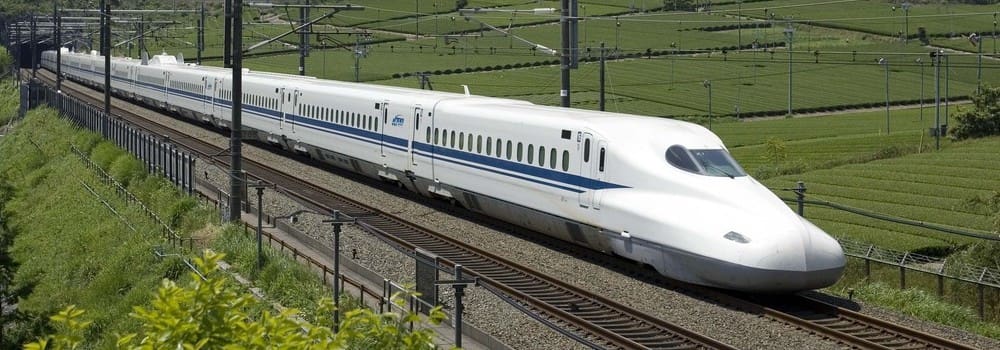A recent study by the Reason Foundation projects a dismal fate for the planned Texas Central high-speed rail, asserting that the rail will eventually have to be bailed out by taxpayers. The study estimates the failed railway could cost taxpayers up to $21.5 billion over the next forty years, a claim Texas Central vehemently denies.
The 65-page study by the free market think-tank documents the conditions which would be required for a rail system to be profitable, noting there are only two such rails in the world turning a profit: Osaka to Tokyo and Paris to Lyons. All other high-speed rails are not profitable and must be subsidized by the government.
The conditions which make the two rails profitable in Japan and France, such as extremely high population density and fewer cars, simply do not exist in Texas. The study explains:
“These lines connect central cities with extremely high residential and commercial population density. The end-point cities of Tokyo, Kyoto, Paris and Nice have far lower rates of car ownership due to much higher car ownership costs, urban policies focusing on inner-city growth, and expansive rail transit systems. In addition, profitable high-speed rail in these cities was built to relieve overcrowding on conventional rail networks. In contrast, there is no passenger rail service connecting Dallas and Houston.”
While successful high-speed rail requires dense urban centers, Dallas and Houston have some of the least dense major urban centers in the country, with Houston ranking only 36th in population density within 2 miles of downtown, and Dallas ranking 143rd. Even the densest cities in America still have a far lower population concentration than cities in Europe and Asia.
Additionally, unlike Japan, neither Houston nor Dallas have extensive public transit systems to get passengers to a connecting high-speed rail and their percentage of transit travel – a major factor in determining a bullet train’s profitability – is a mere 5 percent compared to Tokyo’s 60 percent.
Despite the population difference, Texas Central maintains that the bullet train will have an annual ridership of 5 million by the mid-2020s, which the study describes as “incredibly unrealistic” and “grossly inflated.” Instead, based on data from TxDot, public and private transportation sources, and historic data from existing rails, the Reason Foundation predicts that only 1.4 million Texans would use the train annually.
The study also questions Texas Central’s estimated price tag of $12 million, noting that rail projects almost always cost more than originally projected. The projected cost of California’s high-speed rail has tripled since the original low estimate used to sell the project to the public.
In conclusion, the study expects the Texas high-speed rail to run an average annual deficit of $537.27 million, with a total loss of $21.5 billion over the next 40 years.
Texas Central disagrees, stating, “The recently published Reason Foundation report is deeply flawed and rife with uninformed biases about how Texans travel.”
Remarking that Reason Foundation did not use any of their data, Texas Central rebutted the study:
“We disagree with the paper’s findings, its assumptions and regret its inexplicable departure from the Reason Foundation’s usual adherence to respectable, defensible academic standards.”
The Reason Foundation maintains their study is important because of what is at stake for taxpayers:
“While Texas Central may not be intending to take any public funding, we believe that if construction starts, the project will inevitably have to be bailed out by the taxpayers of Texas, which is unacceptable.”




